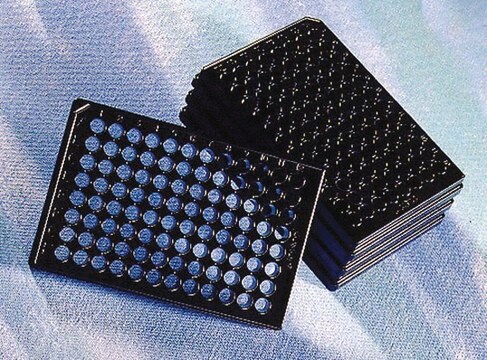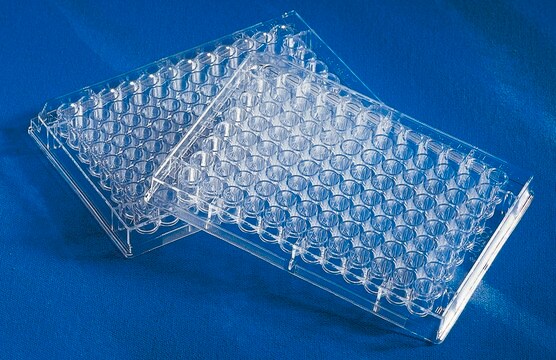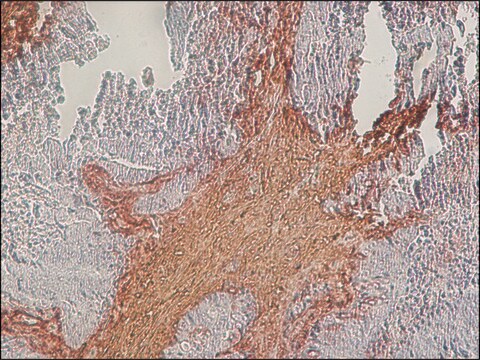MAB2035
Anti-Aggrecan Antibody
CHEMICON®, mouse monoclonal, MK-302
About This Item
Produtos recomendados
Nome do produto
Anti-Chondroitin 6 Sulfate Antibody, clone MK-302, ascites fluid, clone MK-302, Chemicon®
fonte biológica
mouse
Nível de qualidade
forma do anticorpo
ascites fluid
tipo de produto de anticorpo
primary antibodies
clone
MK-302, monoclonal
reatividade de espécies
canine, sheep, rat, rabbit, mouse, bovine, human
fabricante/nome comercial
Chemicon®
técnica(s)
ELISA: suitable
radioimmunoassay: suitable
western blot: suitable
Isotipo
IgG1
nº de adesão NCBI
nº de adesão UniProt
Condições de expedição
dry ice
modificação pós-traducional do alvo
unmodified
Informações sobre genes
human ... ACAN(176)
Especificidade
Imunogênio
Aplicação
RIA at 1:100-1:200.
Chondroitinase ABC digestion prior to antibody reaction is required for antibody reactivity. {0.5U/mL in 100mM Tris-HCL, 30 minutes room temperature} A dramatic proteolytic digestion of the core protein (e.g. with papain or pronase) significantly reduces the antibody reactivity.
Optimal working dilutions must be determined by the end user.
forma física
Informações legais
Não está encontrando o produto certo?
Experimente o nosso Ferramenta de seleção de produtos.
recomendado
Código de classe de armazenamento
10 - Combustible liquids
Classe de risco de água (WGK)
WGK 1
Ponto de fulgor (°F)
Not applicable
Ponto de fulgor (°C)
Not applicable
Certificados de análise (COA)
Busque Certificados de análise (COA) digitando o Número do Lote do produto. Os números de lote e remessa podem ser encontrados no rótulo de um produto após a palavra “Lot” ou “Batch”.
Já possui este produto?
Encontre a documentação dos produtos que você adquiriu recentemente na biblioteca de documentos.
Nossa equipe de cientistas tem experiência em todas as áreas de pesquisa, incluindo Life Sciences, ciência de materiais, síntese química, cromatografia, química analítica e muitas outras.
Entre em contato com a assistência técnica






